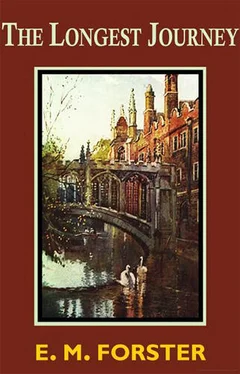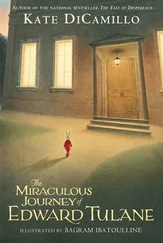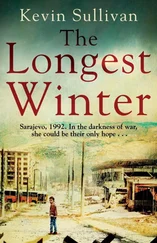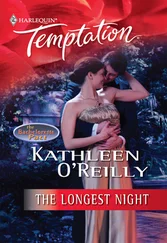Edward Forster - The Longest Journey
Здесь есть возможность читать онлайн «Edward Forster - The Longest Journey» весь текст электронной книги совершенно бесплатно (целиком полную версию без сокращений). В некоторых случаях можно слушать аудио, скачать через торрент в формате fb2 и присутствует краткое содержание. Жанр: Классическая проза, на английском языке. Описание произведения, (предисловие) а так же отзывы посетителей доступны на портале библиотеки ЛибКат.
- Название:The Longest Journey
- Автор:
- Жанр:
- Год:неизвестен
- ISBN:нет данных
- Рейтинг книги:5 / 5. Голосов: 1
-
Избранное:Добавить в избранное
- Отзывы:
-
Ваша оценка:
- 100
- 1
- 2
- 3
- 4
- 5
The Longest Journey: краткое содержание, описание и аннотация
Предлагаем к чтению аннотацию, описание, краткое содержание или предисловие (зависит от того, что написал сам автор книги «The Longest Journey»). Если вы не нашли необходимую информацию о книге — напишите в комментариях, мы постараемся отыскать её.
The Longest Journey — читать онлайн бесплатно полную книгу (весь текст) целиком
Ниже представлен текст книги, разбитый по страницам. Система сохранения места последней прочитанной страницы, позволяет с удобством читать онлайн бесплатно книгу «The Longest Journey», без необходимости каждый раз заново искать на чём Вы остановились. Поставьте закладку, и сможете в любой момент перейти на страницу, на которой закончили чтение.
Интервал:
Закладка:
Such were the opinions of Stewart Ansell.
IX
Seven letters written in June:—
Cambridge
Dear Rickie,
I would rather write, and you can guess what kind of letter this is when I say it is a fair copy: I have been making rough drafts all the morning. When I talk I get angry, and also at times try to be clever—two reasons why I fail to get attention paid to me. This is a letter of the prudent sort. If it makes you break off the engagement, its work is done. You are not a person who ought to marry at all. You are unfitted in body: that we once discussed. You are also unfitted in soul: you want and you need to like many people, and a man of that sort ought not to marry. "You never were attached to that great sect" who can like one person only, and if you try to enter it you will find destruction. I have read in books and I cannot afford to despise books, they are all that I have to go by—that men and women desire different things. Man wants to love mankind; woman wants to love one man. When she has him her work is over. She is the emissary of Nature, and Nature's bidding has been fulfilled. But man does not care a damn for Nature—or at least only a very little damn. He cares for a hundred things besides, and the more civilized he is the more he will care for these other hundred things, and demand not only—a wife and children, but also friends, and work, and spiritual freedom.
I believe you to be extraordinarily civilized.—Yours ever,
S.A.
Shelthorpe, 9 Sawston Park Road, Sawston
Dear Ansell,
But I'm in love—a detail you've forgotten. I can't listen to English Essays. The wretched Agnes may be an "emissary of Nature," but I only grinned when I read it. I may be extraordinarily civilized, but I don't feel so; I'm in love, and I've found a woman to love me, and I mean to have the hundred other things as well. She wants me to have them—friends and work, and spiritual freedom, and everything. You and your books miss this, because your books are too sedate. Read poetry—not only Shelley. Understand Beatrice, and Clara Middleton, and Brunhilde in the first scene of Gotterdammerung. Understand Goethe when he says "the eternal feminine leads us on," and don't write another English Essay.—Yours ever affectionately,
R.E.
Cambridge
Dear Rickie:
What am I to say? "Understand Xanthippe, and Mrs. Bennet, and Elsa in the question scene of Lohengrin"? "Understand Euripides when he says the eternal feminine leads us a pretty dance"? I shall say nothing of the sort. The allusions in this English Essay shall not be literary. My personal objections to Miss Pembroke are as follows:—(1) She is not serious. (2) She is not truthful.
Shelthorpe, 9 Sawston Park Road Sawston
My Dear Stewart,
You couldn't know. I didn't know for a moment. But this letter of yours is the most wonderful thing that has ever happened to me yet—more wonderful (I don't exaggerate) than the moment when Agnes promised to marry me. I always knew you liked me, but I never knew how much until this letter. Up to now I think we have been too much like the strong heroes in books who feel so much and say so little, and feel all the more for saying so little. Now that's over and we shall never be that kind of an ass again. We've hit—by accident—upon something permanent. You've written to me, "I hate the woman who will be your wife," and I write back, "Hate her. Can't I love you both?" She will never come between us, Stewart (She wouldn't wish to, but that's by the way), because our friendship has now passed beyond intervention. No third person could break it. We couldn't ourselves, I fancy. We may quarrel and argue till one of us dies, but the thing is registered. I only wish, dear man, you could be happier. For me, it's as if a light was suddenly held behind the world.
R.E.
Shelthorpe, 9 Sawston Park Road, Sawston
Dear Mrs. Lewin,—
The time goes flying, but I am getting to learn my wonderful boy. We speak a great deal about his work. He has just finished a curious thing called "Nemi"—about a Roman ship that is actually sunk in some lake. I cannot think how he describes the things, when he has never seen them. If, as I hope, he goes to Italy next year, he should turn out something really good. Meanwhile we are hunting for a publisher. Herbert believes that a collection of short stories is hard to get published. It is, after all, better to write one long one.
But you must not think we only talk books. What we say on other topics cannot so easily be repeated! Oh, Mrs Lewin, he is a dear, and dearer than ever now that we have him at Sawston. Herbert, in a quiet way, has been making inquiries about those Cambridge friends of his. Nothing against them, but they seem to be terribly eccentric. None of them are good at games, and they spend all their spare time thinking and discussing. They discuss what one knows and what one never will know and what one had much better not know. Herbert says it is because they have not got enough to do.—Ever your grateful and affectionate friend,
Agnes Pembroke
Shelthorpe, 9 Sawston Park Road Sawston
Dear Mr. Silt,—
Thank you for the congratulations, which I have handed over to the delighted Rickie.
(The congratulations were really addressed to Agnes—a social blunder which Mr. Pembroke deftly corrects.)
I am sorry that the rumor reached you that I was not pleased. Anything pleases me that promises my sister's happiness, and I have known your cousin nearly as long as you have. It will be a very long engagement, for he must make his way first. The dear boy is not nearly as wealthy as he supposed; having no tastes, and hardly any expenses, he used to talk as if he were a millionaire. He must at least double his income before he can dream of more intimate ties. This has been a bitter pill, but I am glad to say that they have accepted it bravely.
Hoping that you and Mrs. Silt will profit by your week at Margate.-I remain, yours very sincerely,
Herbert Pembroke
Cadover, Wilts.
Dear Miss Pembroke,—Agnes—
I hear that you are going to marry my nephew. I have no idea what he is like, and wonder whether you would bring him that I may find out. Isn't September rather a nice month? You might have to go to Stone Henge, but with that exception would be left unmolested. I do hope you will manage the visit. We met once at Mrs. Lewin's, and I have a very clear recollection of you.—Believe me, yours sincerely,
Emily Failing
X
The rain tilted a little from the south-west. For the most part it fell from a grey cloud silently, but now and then the tilt increased, and a kind of sigh passed over the country as the drops lashed the walls, trees, shepherds, and other motionless objects that stood in their slanting career. At times the cloud would descend and visibly embrace the earth, to which it had only sent messages; and the earth itself would bring forth clouds—clouds of a whiter breed—which formed in shallow valleys and followed the courses of the streams. It seemed the beginning of life. Again God said, "Shall we divide the waters from the land or not? Was not the firmament labour and glory sufficient?" At all events it was the beginning of life pastoral, behind which imagination cannot travel.
Yet complicated people were getting wet—not only the shepherds. For instance, the piano-tuner was sopping. So was the vicar's wife. So were the lieutenant and the peevish damsels in his Battleston car. Gallantry, charity, and art pursued their various missions, perspiring and muddy, while out on the slopes beyond them stood the eternal man and the eternal dog, guarding eternal sheep until the world is vegetarian.
Читать дальшеИнтервал:
Закладка:
Похожие книги на «The Longest Journey»
Представляем Вашему вниманию похожие книги на «The Longest Journey» списком для выбора. Мы отобрали схожую по названию и смыслу литературу в надежде предоставить читателям больше вариантов отыскать новые, интересные, ещё непрочитанные произведения.
Обсуждение, отзывы о книге «The Longest Journey» и просто собственные мнения читателей. Оставьте ваши комментарии, напишите, что Вы думаете о произведении, его смысле или главных героях. Укажите что конкретно понравилось, а что нет, и почему Вы так считаете.












